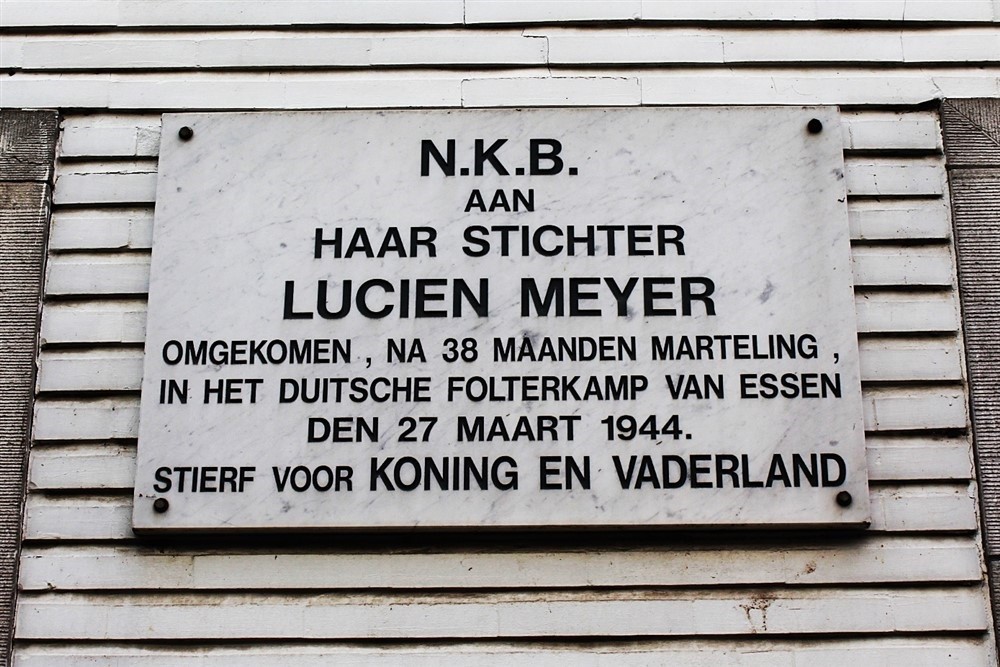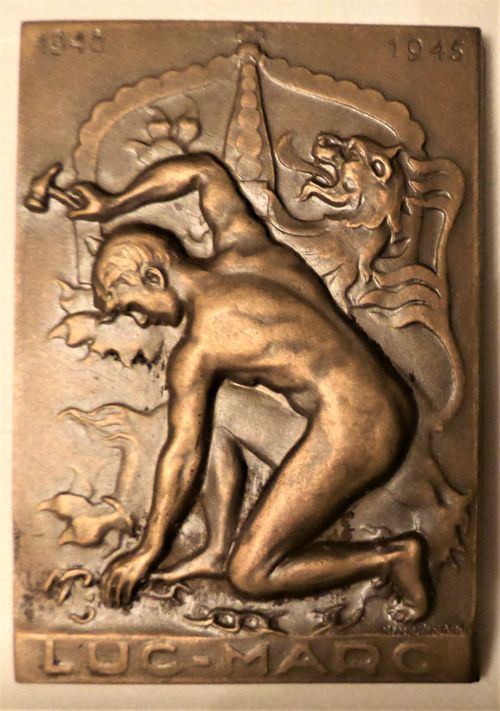Memorial Lucien Meyer Aarschot
Lucien Meyer (Hasselt, June 6, 1903 - Essen, March 26, 1944) was a member and leader of the National Royal Movement. The NKB was already established in Aarschot in 1940, shortly after the Belgian defeat. The founders Lucien Meyer and Theo Simon were Rexist youngsters, who did not agree with the collaborative politics of Rex and the VNV (Flemish Nationalist Association). They came into contact with the Leuven professor Eugène Mertens de Wilmars. He was also a former Rexist and advocated the authoritarian power of King Leopold III. To deceive the Germans, the movement posed in Aarschot as a gymnastics group, under the name Naar Kultuur en Bekwaming.
When there were rumors in Aarschot that the VNV would seize power on Easter Monday, April 14, 1941, many NKB members stood armed and covered up in the city. However, not a single VNV member could be detected. Convinced that they had scared the VNV, the NKB companies marched discreetly, but singing loudly through the streets. The Germans could not escape such action and the movement was banned.
Lucien Meyer was arrested on September 13, 1941. "All means were used to make him click on his comrades. [..] He was whipped and tortured, but kept silent. "Meyer was finally sent as a forced laborer to unknown territory. He died in Essen on March 26, 1944, according to official sources "as a result of an air raid." He was the father of four children.
The National Royal Movement
Although the basis was not much focused on political discussions, the NKB stood for a little democratic authoritarian rule led by the king. The NKB undoubtedly had a large following in Catholic centers such as the Christian Workers' Movement and the Boerenbond. In Antwerp, many dockers and staff from the port services were active. That group played a major role in the safeguarding of the port in September 1944. The NKB was very active in the actions against compulsory employment. She also did intelligence work and minor sabotages, provided assistance to Jews in hiding and allied pilots and published a number of solid cover magazines, including Vrij Volk in Leuven.
The memorial plaque
The simple marble slab was already unveiled on July 8, 1946. It is located where Lucien Meyer's childhood home was and where he was arrested. It was probably a clear signal to the government. After the liberation, the N.K.B. recognized with difficulty. In the period of the royal question, the resistance movement was distrusted for its strong royalism.
Do you have more information about this location? Inform us!
Source
- Text: Jan Rymenams
- Photos: Jan Rymenams
Related books
Nearby
Museum
- Stedelijk Museum, Room "War and destruction" Aarschot - Aarschot
- Allied Forces Museum Herselt - Herselt
- House of the Franco-Belgian Resistance - Tielt-Winge
Point of interest
- Grote Markt Aarschot - Aarschot
- Glass Window Church Of Our Lady Aarschot - Aarschot
- Peace Carillon Aarschot - Aarschot
Monument
- Memorial Stone Anna Persy Aarschot - Aarschot
- War Memorial Aarschot - Aarschot
- Monument Jozef Tielemans Aarschot - Aarschot
Cemetery
- Belgian War Graves Aarschot - Aarschot
- Belgian Graves Veterans Aarschot - Aarschot
- Commonwealth War Graves Langdorp - Langdorp (Aarschot)







